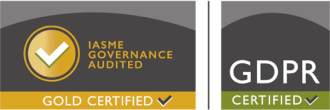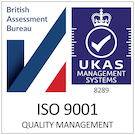.jpg)
Posted: 8th November 2022
Every business is a target when it comes to cyber crime. It’s no longer a case of ‘if’ you are hit but ‘when’. However, there are ways to reduce your exposure to cyber attacks that can help protect your business and reputation.
How to reduce your exposure to cyber attacks.
With these 7 essential security controls, you can effectively and affordably reduce your exposure to common cyber attacks:
#1. Boundary firewalls and internet gateways
All devices run network services, which enable them to communicate with other devices and services. Restricting access to these services can reduce your exposure to cyber attacks. By establishing network perimeter defences, such as web proxy, content checking, web filtering and firewall policies, you can detect and block executable downloads, prevent direct internet communication and block access to malicious domains.
#2. Malware protection
Malware is software developed to cause damage to a network, device, server, or client. To reduce exposure to this cyber attack, reliable malware defences must be established and maintained. Providing it is correctly configured on installation, adequate anti-malware software can detect and respond to attack code. It’s always best to seek guidance from your IT provider or a cyber security specialist first to be sure you’re getting the level of protection you need.
Viruses And Malware: Is There A Difference?
#3. Patch management
Out-of-date software leaves gaping vulnerabilities in your cyber security. Keeping on top of patches is an easy win to reduce your exposure to cyber attacks, yet easy to overlook. When left in the hands of users, updates are often paused and avoided due to the time they take and the inconvenience of having to restart devices. However, if you work with a Managed Service Provider, all your updates can be taken care of automatically and out of working hours.
4 Signs Your Business Is Ready For A Managed Service Provider
#4. Execution access
Whilst having downloads and software run themselves offers convenience, allowing those from unknown sources to do so leaves you highly exposed to cyber attacks. AutoRun on USB and CD drives should always be restricted for tighter security.
#5. Secure configuration
From desktop computers to laptops, tablets to mobile phones, all business devices should be professionally configured. Default configuration usually allows users to freely browse the internet, including social media, increasing exposure to cyber criminals. A secure configuration will restrict the functionality of a device to only that necessary for business-related functionality.
Reports suggest thousands of Facebook account hacking happen daily
#6 Passwords
If you read our blogs often, you’ll have read many of our tips on passwords. But the importance of a secure password strategy is immeasurable in reducing your exposure to cyber attacks. The only thing more important is making sure your teams put it into practice.
What Is The Best Password Strategy?
#7. User access control
Whilst granting full access to all users seems like an easy option, the more machines that have access to sensitive information, the more exposed you are to a cyber attack. Limited user access ensures all users have access to only the data they need to fulfil their day-to-day to increase security and reduce the risk of lost or stolen data.
Cyber security is our speciality
These 7 security controls are an extension of the 5 key controls laid out by the Government-backed Cyber Essentials initiative. For greater peace of mind, the NCSC set out additional controls in their 10 Steps to Cyber Security. It’s worth taking a look – you could reduce your exposure to cyber attacks even further. At Jupiter IT, we take a proactive approach to cyber security. We constantly monitor your systems in the background and perform regular cyber security audits. To find out more, or for a free audit of your systems get in touch for a chat.








